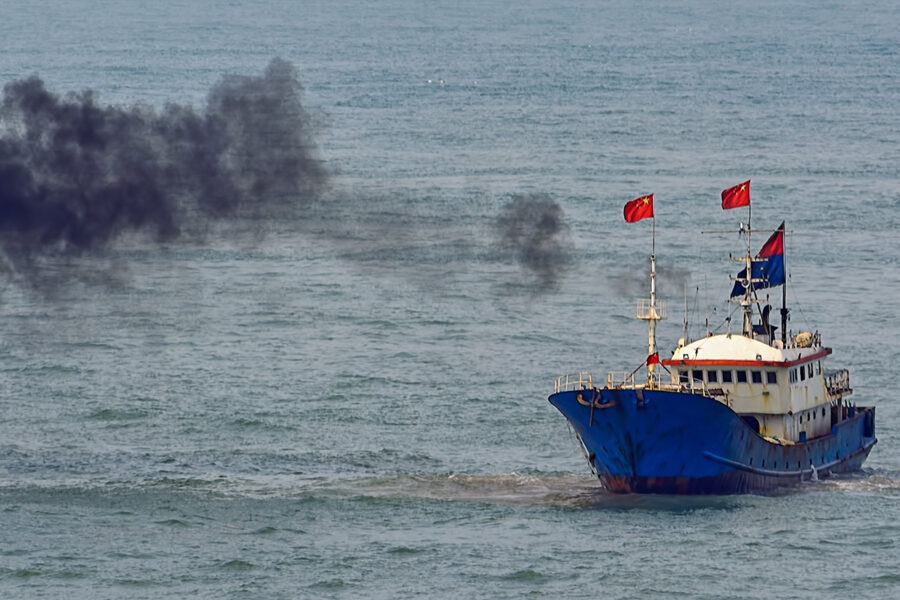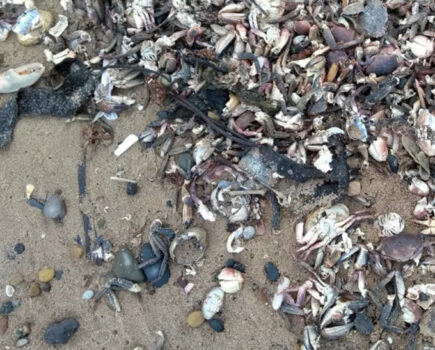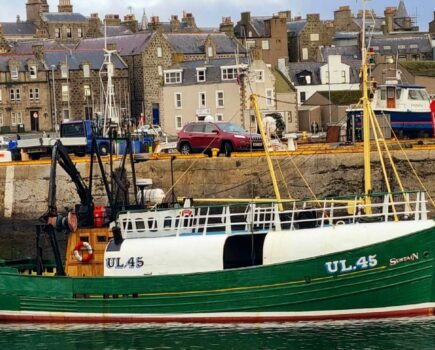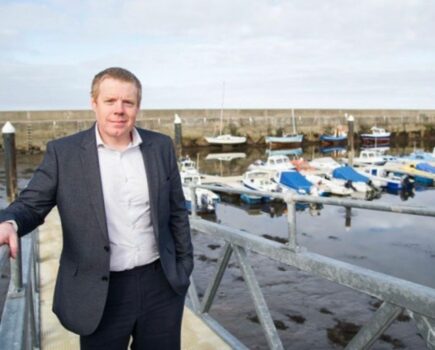In a report issued earlier this year, WWF commissioned an analysis of UK seafood consumption, and the huge volumes that are imported without reference to how it is caught or produced. Going beyond sustainability certification, WWF argued for a wholesale change in how seafood is regulated – a policy that, it is argued, would be of benefit to UK fishers, many of whom already meet much more stringent criteria than many foreign producers.
Clarus Chu, senior policy advisor (production) at WWF-UK and Hayley Swanlund, seafood sustainability officer at WWF-UK, explain more.
Before 1984, the UK was a net exporter of seafood, with large fleets travelling as far as the Grand Banks in Canada and the Barents Sea to catch our favourite fish. However, over the years, the UK has increasingly relied on seafood imports, primarily owing to the decline of local fish stocks such as cod, fishing ground access restrictions and an increase in demand. Nevertheless, the UK has remained one of the major fishing nations in Europe, supplying seafood to meet local and international demand.
We are now facing what WWF sees as a ‘triple challenge’: producing nutritious food for a growing population, while staying on track to keep global temperatures below the 1.5°C target, and reversing biodiversity loss. Sustainable seafood has a big role to play in meeting our nutrition, climate and nature targets. However not all seafood is equal in terms of meeting this triple challenge.
Worse, many UK fishers are competing in UK markets against imports that do not meet the same high standards, or help address this triple challenge. To date there has been no comprehensive analysis to understand the collective impact of the UK’s seafood consumption on global biodiversity loss, climate change, and its associated risks to nature and people.
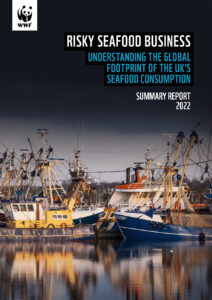
Risky Seafood Business,
the detailed report released by WWF earlier this autumn on the UK seafood market, identified that huge volumes of seafood imported to the UK was subject to no scrutiny at all as to the environmental and social footprints of the fleets catching it.
WWF’s Risky Seafood Business report, produced earlier this year, analyses the UK’s footprint risks resulting from imported and domestically produced seafood. If UK fisheries are asked to meet high and exacting targets on conservation and emissions, then imported fish should be held to similar standards.
A total of 10 different ecological, climate and social indicators were used to assess 157 seafood supply chains across popular seafood groups including whitefish such as cod, salmon, and different pelagics. The footprint refers to the impacts of seafood extraction, production and consumption. It also includes related socioeconomic activities on nature and the functioning of natural systems, as well as the drivers and pressures that cause those risks and impacts such as overfishing, seabed habitat destruction and release of blue carbon.
Key findings of the report include:
- In 2019, the UK ate 887,000t of seafood, equivalent to 5.2bn portions of fish and chips – and yet the average UK citizen is only eating half of the government-recommended two portions of fish a week.
- 81% of seafood consumed by volume is imported, but no environmental or social regulatory criteria exists for this, bar ensuring that wild-caught seafood is from a legal source.
- 70% of our domestic seafood production is exported overseas. The UK’s seafood production has a higher footprint than some of our neighbouring countries in the North East Atlantic such as Iceland and Norway, but lower than those of countries in Africa and Asia.
- Species with the highest risks overall include tuna, swordfish, warm-water prawns, squid and certain crab species. Species with the lowest footprint include UK rope-grown mussels and small pelagic fish such as herring.
- The UK’s seafood demand directly impacts at least 253 endangered, threatened and protected (ETP) species including sharks, birds and marine mammals.
To follow the UK government’s recommendation to consume two portions of fish a week, urgent and collective action must be taken to ensure that all our imported seafood comes from sustainable sources. This would be great news for many UK catchers and processors, who are currently competing with imports from some poorly regulated fisheries.
The recently published UK Food Strategy White Paper highlights the importance of a prosperous seafood sector in the UK. It can build food security in an unpredictable world, although we must lower the footprint of our own seafood production even further if it is to fit into the wider food system agenda.
We all have an important role to play in reducing the UK’s seafood consumption footprint and helping to drive positive changes at home and across the world. UK governments must lead the way in filling the current gaps in seafood production regulations and core environmental standards for both imported and domestic seafood.
UK businesses can also drive transformation of their seafood sourcing to address the triple challenge outlined by WWF and put UK fishers back on a level playing field. At the same time, consumers can help shift the dial by making responsible seafood choices, particularly opting for lower-footprint seafood like farmed mussels.
As a net importer, the UK’s seafood footprint has significant environmental and social impacts far beyond our shores. Although positive progress has been made in recent decades to improve the way seafood is produced, managed and sold in the UK, it is clear there is still much more to do, and the urgent actions recommended in the report must be taken.
Concerted and collaborative efforts from UK governments and businesses are required to shift the country’s seafood production onto a sustainable footing for the long term and avoid exporting our environmental footprint to other countries, through the seafoods that we import for consumption in the UK.
UK rope-grown mussels: the unsung hero in seafood sustainability
The 2022 WWF Risky Seafood Business report analyses a total of 157 UK and overseas seafood supply chains from 40 countries. While it identifies species with high footprints like tuna and swordfish, it also points to an unsung seafood sustainability hero, UK rope-grown mussels, which have the lowest environmental, climate and social footprint of all species in the report.
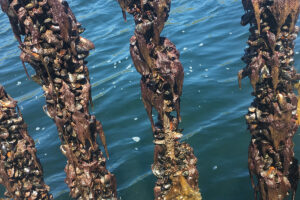
Rope-grown mussels are identified by the WWF report as one of most climate-friendly seafood choices.
Blue mussels Mytilus edulis are indigenous to our shores and can be found all around the coast of British Isles. They have been farmed in the UK for decades, supporting livelihoods in coastal communities. Free-swimming juvenile mussels attach to the longline ropes in mussel farms and filter-feed from the water column, requiring no feed inputs, chemicals or fertilisers. In fact, mussel farming has been shown to improve water quality at farm sites with the removal of excess nutrients and phytoplankton, and the UK employs a well-defined water classification scheme for mussel consumption.
Unlike wild-capture fisheries where vessels typically need to travel long distances, mussel farming requires very little use of fossil fuels, and has little interaction with the seabed which could disturb trapped carbon in the sediment. A recent study published in Nature estimated that the greenhouse gas emissions of farming shellfish like mussels is only around 1.4kg of CO2 per kg of meat produced, meaning that it has significantly lower climate change risks compared to land-based livestock protein and other sources of seafood.
One risk associated with mussel farming relates to interactions with species like the eider duck, which is protected in the UK. They feed on the spat found on rope-grown mussels, and mussel farmers are known to chase the birds away or use acoustic deterrents.
In the report, consumers are recommended to diversify their seafood choices and opt for low-footprint species like rope-grown mussels. WWF offers other tips on its website to help consumers to make responsible choices.
This story was taken from the latest issue of Fishing News. For more up-to-date and in-depth reports on the UK and Irish commercial fishing sector, subscribe to Fishing News here or buy the latest single issue for just £3.30 here.

